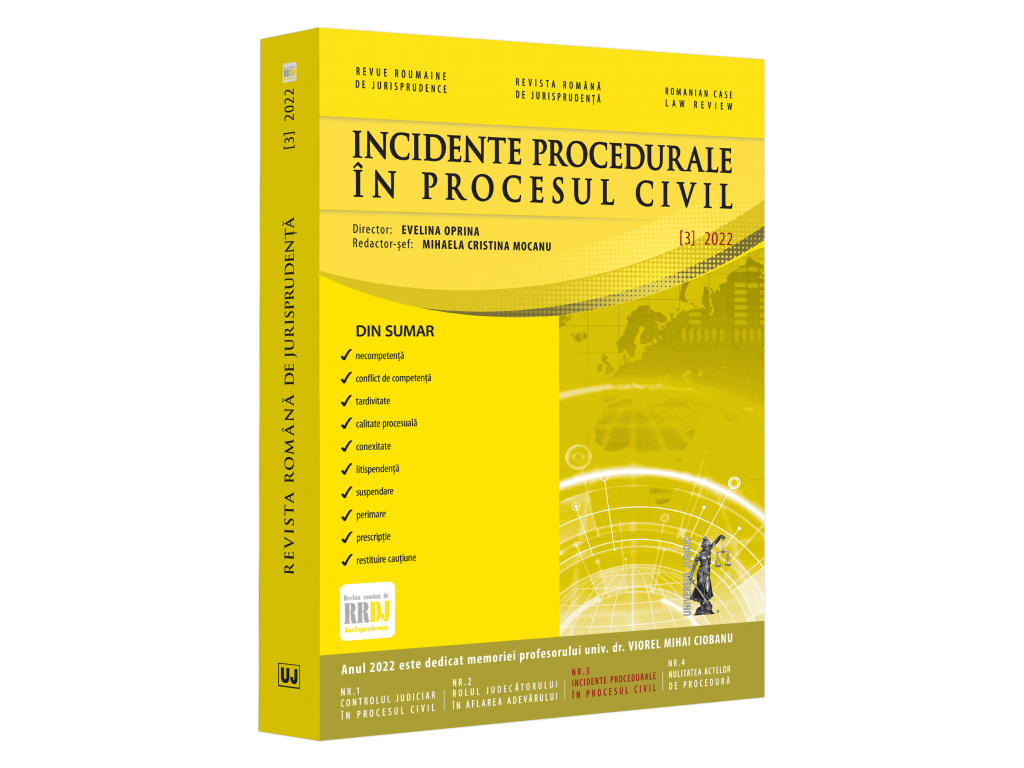The return of forced execution in the context of the cancellation of some abusive clauses in the structure of the bank debt arising from a consumer bank credit contract.
DEZBATERI
Abstract
Imperatives related to the acceleration of the circulation of capital, the rapidity of the execution of professional contracts and the relief of the courts in the area of sentencing debtors to pay, imposed the intervention of the legislator in the area of regulation of enforceable titles. Thus, a variety of other private documents that constitute enforceable titles by the will of the law have been added to court decisions, traditionally legislated as enforceable titles.
The destruction of the enforceable title leads to chain effects in terms of execution, the enforced debtor having the way open to the return of the enforced execution by restoring the situation before the execution, mainly in the form of restitution in kind of the enforced assets. The procedural means of capitalizing on this right are multiple and alternative, the debtor not being obliged to present the request for the return of execution within the framework of an appeal to the execution or its trial procedure, being able to resort to the separate way in order to achieve the same goal (within the 3-year limitation period).
The return of enforcement is preceded by the court's finding regarding the de jure cancellation of all enforcement acts (consequence of the cancellation of the enforcement title) or the cancellation of the enforcement itself (independent of the cancellation of the enforcement title). The institution-remedy of the return of the execution is also applied in the case of partial annulment/cancellation of the enforceable title, it being essential that the elements of the annulled title are decisive in the equation of the start of the forced execution.
Bank credit agreements and collateral real/personal guarantees have been endowed by the legislature with enforceable force. When part of the bank credit report is the consumer, the enforcement norm created in favor of the banking professional becomes vulnerable to the impact on consumer protection derived from the sanction of removing the abusive clauses inserted in the enforced debt structure (especially the variable interest, the administration fee and the anticipated maturity of credit). The absolute nullity of the abusive clauses, which is equivalent to the partial abolition of the enforceable title, operates retroactively and completely deprives the bank claim pursued for recovery of its definite, liquid and enforceable character (mandatory condition for the legal start of any enforced execution), which cannot be split (into a traceable part and an untraceable part). In order to recover the part of the debt not affected by the malignancy of the abuse (essentially the borrowed capital due according to the schedule), the banking professional must remove the abusive clauses from the contract and the structure of the debt and redo the calculations of the principal rates from the contents of the repayment schedule, because only then request the execution – voluntarily or forcibly – of the valid claim (certain, liquid and enforceable).
The national procedural rules in the matter must be interpreted and applied in relation to the purpose pursued by Directive 93/13/CEE, in order to ensure maximum protection of the consumer (especially in the case where the foreclosure concerned his family home) and to impress the dissuasive effect as far as professionals are concerned, so that they are dissuaded from using abusive clauses and foreclosing on them.
Keywords: enforceable titles; consumer bank credit contracts; abusive clauses; enforcement; return of foreclosure; restoring the situation prior to forced executions in the context of consumer protection.








